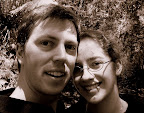The truth of it
Monday, August 18, 2008
Continuing my exploration of words and reality, it is time to consider how 'truth' comes into play. I was watching The Bourne Supremacy the other night, and came across a scene where an assassin who was thought to have killed Jason Bourne was summoned out of the nightclub he was lounging in to the door of the car of his boss. The window is wound down and the boss says 'your phone was turned off, what the hell is going on?'
'You told me I could have the month off." He replied.
"You told me Jason Bourne was dead." And he wound up the window and drove off.
A short and simple transaction of just a few words, but there was so much in them. Everything had been rested on the words the assassin had previously told him. He took his words as reality ("as gospel") and based a whole future path on that. But the assassin's words were not true, they did not reflect the reality, and thus the two characters integrated their lives and decisions into a fictional reality.
What struck me was the importance of being told the truth in order to make correct judgments. We need to be told words that we can depend on. We need words that are true, that we can make decisions on, that we can trust. We make decisions that can affect the rest of our lives, and those decisions are often based on the words we receive.
"We can only go on the information we have."
What the assassin said was actually true as far as he knew it, but he didn't know the whole story. If I go back to my previous example of the various news articles about the real estate market and interest rates, they are largely making claims based on limited information. They do not know the whole picture and therefore are incapable of making a truthful claim (truth-full). As far as they can report a trend, that trend may be true, but it is not the whole story. Any claim deduced from this cannot be considered truth.
And so, in a world of people with limited ability to grasp the 'whole story', it would seem the truth is inaccessible. If nobody can know the whole picture, if we each are given but a piece of the puzzle, we are left to guess how it fits into the larger puzzle. Perhaps indeed we ourselves are that piece of the puzzle, and we all wonder how we ourselves fit in. And yet, every single day we find ourselves trusting the claims and words of other people; people who are just as limited as us. When we face it, we are confronted with the fact that faith is necessary to do anything in this world.
I am sure we would all love to have a reliable truth that we can put our faith in. Words from someone who does not have the limitations we have, who knows the full picture, and who can therefore speak the truth. And I am sure that, logically, those words might sound very different to what we might have formulated from our own limited perspective, just as it would be quite strange for that assassin to have shot Jason Bourne and seen his car career over the bridge and into the water and then to say "I didn't kill him at all", and for that to be a true statement.
It is funny that when we think about it, we can accept that truth might even sound foolish to our ears, and yet still be true. The Bible claims that Jesus is the truth (John 14:6). It claims to be words from a God who knows the whole story and can thus speak words of truth, reliable words to put our trust in. And yet so many people find it foolish to consider those words as true. My heart longs for a true word to trust in. Such a word, by necessity, can only come from God.
Tell a man there 4 billion stars in the sky and he will believe you. Tell him a seat has wet paint and he will have to touch it.

1 comments:
I like yr last quote :), I think that the difference though is, one we cannot find out for ourselves and have no way of easily getting a better estimate for ourselves...but the second is easy to test for ourselves and is tangible... so maybe they don't end up being a good comparison!
I love it when people don't trust what I say as a friend or family member even when it is something I have been trained or employed in...but they'll trust a stranger! I find that hilarious! Who is the person that has proved themselves more often? Usually me. However, I think equal, I've probably failed them at times too and so that loses trust...but the stranger hasn't proved themselves at all!!
I think it's not just interesting WHAT we trust but WHO we trust!
R. xo
Post a Comment